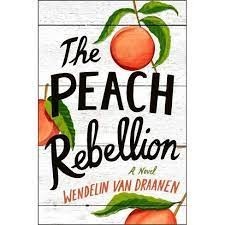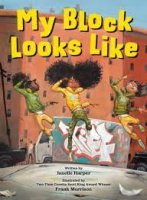American herstory - instead of American history- for a change. As the Great Depression lifted its hold on Americans and World War II with all of its sacrifices at home came to an end, the roles of men and women had faced a big shift. Women had worked in the factories and flown planes and wondered how things would be different now.
For some women it was time to work on the line in the factory in backbreaking heat of summer. For at least two daughters it was a time to learn that the family farm they worked so hard to support was not going to come to them as a shared inheritance. Social class systems slipped back into place dragging women and girls into a hierarchy they weren't ready to accept.
That leaves romance - what about the guys? Turns out girls still dressed up and went to the skating rink to catch sight of one particular guy. But was he waiting to see her? Or was he waiting for another pretty face?
Fascinating stories of three young women in three different families all carrying hope, disappointment, courage and determination forward as they begin to see through the expectations and the deceit... and the power of working together.
Recommended by: Barb Langridge, abookandahug.com
*********
The Peach Rebellion
From the author of The Running Dream comes a heart-swelling historical tale of friendship, family, and the power of sisterhood to help heal the wounds of the past and step boldly into the future.
Ginny Rose and Peggy were best friends at seven, picking peaches on hot summer days. Peggy’s family owned the farm, and Ginny Rose’s were pickers, escaping the Oklahoma dust storms. That didn’t matter to them then, but now, ten years, hard miles, and a world war later, Ginny Rose’s family is back in town and their differences feel somehow starker. Especially since Peggy’s new best friend, Lisette, is a wealthy banker’s daughter.
Still, there's no denying what all three girls have in common: Families with great fissures that are about to break wide open. And a determination to not just accept things as they are anymore.
This summer they will each make a stand. It’s a season of secrets revealed. Of daring plans to heal old wounds. Of hearts won and hearts broken. A summer when everything changes because you’re seventeen, and it’s time to be bold. And because it’s easier to be brave with a true friend by your side.---from the publisher
416 pages 978-0593378564 Ages 12-17
Keywords: historical fiction, friends, friendship, summer, bravery, family, 12 year old, 13 year old, 14 year old, 15 year old, coming of age, social issues, social conditions, women, 20th century, farming
*****************
“Liberty, laughing and shaking your head
Can you carry the torch that'll bring home the dead?”
– Graham Nash, “Southbound Train” (1972)
In 1947, two childhood best friends reconnect as teenagers, leading to a multiplicity of actions and reactions in a California Central Valley agricultural community.
Shades of Tom Joad: Ginny Rose Gilly is a so-called Okie. Her father used to farm 80 acres of wheat. But the drought that precipitated the historic Dust Bowl led to crop failures, bank foreclosures, and the necessity for the Gilly family to load up the old farm truck with whatever would fit, and head to California. They’ve been trying, ever since, to survive by eking out a living as migrant farm workers. This sequence of events in Ginny Rose’s young life also led to the deaths of Ginny’s two younger brothers.
Peggy Simmons is the daughter of a Central Valley peach farmer. She and Ginny Rose were best friends in their pre-pubescent years, two little girls hanging out together, doing farm work, sorting peaches. But then Ginny Rose’s family didn’t show up at the Simmons’s orchard for years. Peggy eventually became best friends with Lisette.
Lisette Bovee is the privileged, only child of the town banker.
THE PEACH REBELLION blew me away. The varied family dynamics in which each of these young women is entangled, and the evolving relationships that develop between Ginny Rose, Peggy, and Lisette, fuel this powerful historical novel about post-WWII California. Its depiction of women’s roles at the dawn of the Boomer era hint at the changes that, decades in the future, would eventually culminate in Title IX; female governors, senators, and Supreme Court justices; and Kamala Harris sitting a heartbeat away from the Presidency.
But that’s not how it was in 1947:
“Primogeniture is the right, by law or custom, of the firstborn legitimate child to inherit the parent’s entire or main estate in preference to shared inheritance among all or some children, any illegitimate child, or any collateral relative. In most contexts it means the inheritance of the firstborn son”
– Wikipedia
Peggy:
“She sat up a little straighter and said, ‘So Mother didn’t also tell you why I left?’
‘Why you…?’ I could see in her eyes that I was missing something but I didn’t know what.
She leaned forward, her face hardening. ‘Why I eloped…?’
I had no idea what she was getting at, so I simply said what I believed. ‘Because you fell madly in love with Tom and were sick of living at home?’
She hacked out a laugh, one full of bitterness. ‘Tom happened because I was angry.’
I bit my tongue. She’d always been some shade of angry.
In response to my silence, she asked, ‘So…do you want to know why?’
I didn’t want to know. But since it would be rude to say that, and since the kettle was coming to a boil, I said, ‘If you’re sure you want to tell me,’ and got busy making a pot of tea.
‘Well, you’re almost seventeen, so you better start facing facts.’
I turned to look at her. ‘What does this have to do with me?’
‘You know we’re just free labor to them, right?’
I gave her a hard squint. ‘What are you talking about?’
‘They’re leaving it all to Bobby. The orchard. The land. The house. Everything.’
As I sat two cups and the steaming teapot on the table, my legs turned to jelly and I landed in the chair across from her again.
‘Ha!’ she said, taking in my expression. ‘I knew they wouldn’t tell you.’”
Ginny Rose’s sudden reappearance in Ginny’s life, after a half-dozen years apart, contributes to Ginny’s and Lisette’s enlightenment, and leads to them speaking up in ways they never have before. The story also personifies and foretells the degree to which rigid class structure in the United States would begin dissolving during the booming postwar era.
This book is one not to miss. It is perfect for middle school readers as well as high schoolers.
Recommended by: Richie Partington, MLIS, California USA
See more of Richie's Picks <https://richiespicks.com/> https://richiespicks.pbworks.co






